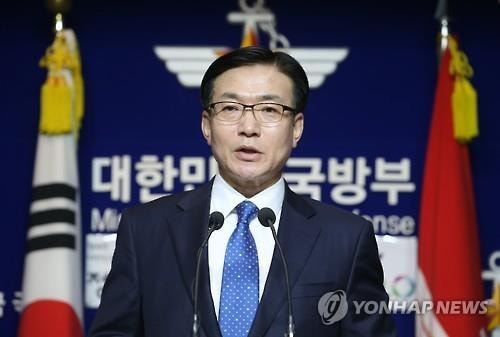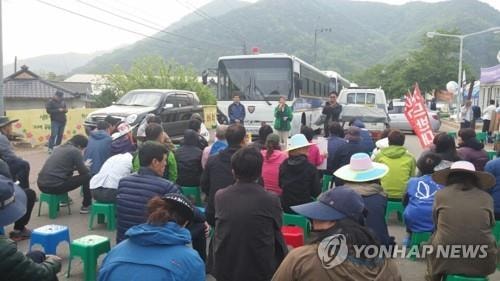South Korea says 'no' to renegotiating THAAD
(Baonghean.vn) - South Korea on May 1 ruled out the possibility of renegotiating the cost of deploying the US missile defense system (THAAD), responding to pressure from the Donald Trump administration to share the financial burden.
 |
| Moon Sang-gyun, spokesman for the South Korean Ministry of National Defense. Photo: Yonhap. |
“Our position on this issue is that it cannot be renegotiated,” Moon Sang-gyun, a spokesman for the South Korean Defense Ministry, said at a press conference.
He stressed that there is already a bilateral agreement on this issue and there is also a related provision in the Status of Forces Agreement (SOFA).
Under the SOFA, the US Forces Korea (USFK) is responsible for operating its weapons in the country, while South Korea is responsible for providing “facilities and locations.”
The issue of who will “pay the bill” for the THAAD deployment in South Korea has emerged as a hot topic between the US-South Korea alliance since US President Donald Trump said in an interview last week that he wanted Seoul to pay an estimated $1 billion.
The USFK installed key components of the new weapon at a former golf course in Seongju, North Gyeongsang Province, under a controversial 2016 agreement with South Korea. They said THAAD’s deployment on the Korean Peninsula was necessary to curb Pyongyang’s nuclear and missile ambitions. South Korea has provided the site for the deployment, requiring the US to pay for installation and maintenance.
The South Korean Defense Ministry's tough stance on the cost of the THAAD system came after US National Security Adviser General McMaster told Fox News that his government would honor the existing agreement but only until "there is any renegotiation".
He said Trump, a former real estate mogul, was now looking for “appropriate burden-sharing, responsibility-sharing” with South Korea and other U.S. allies. He did not say whether the reference to “renegotiation” was a “foreshadowing” of a push to renegotiate with Seoul over last year’s THAAD cost deal.
 |
| Residents of Seongju, North Gyeongsang Province, staged a sit-in on May 1, blocking the path of police vehicles. Photo: Yonhap. |
South Koreans, however, are concerned that THAAD deployment will eventually increase their financial burden. In addition, the allies are planning to launch separate talks next year on sharing the financial burden of stationing 28,500 USFK troops. Under the current five-year contract, Seoul pays 920 billion won ($807 million) a year through 2018.
Regarding South Korea's financial support, Moon said the government will negotiate with the United States to arrive at an appropriate figure through comprehensive consideration of various factors including the security situation, USFK's contribution, Seoul's financial capacity and stable conditions for the presence of US forces members.
He declined to answer questions about whether THAAD would be among the factors considered in cost-sharing negotiations for USFK.
Meanwhile, many residents of Seongju expressed anger, continuing to protest THAAD deployment in their hometown, which is famous for its melon industry. More than 150 people participated in a sit-in protest, blocking the entrance of police vehicles to the THAAD area. They claimed that the police were mobilized to facilitate the route of trucks carrying fuel from USFK and other equipment.
These locals are worried about the possibility of lives being damaged and direct attacks that could be launched by North Korea on the area.
Phu Binh
(According to Yonhap)
| RELATED NEWS |
|---|
